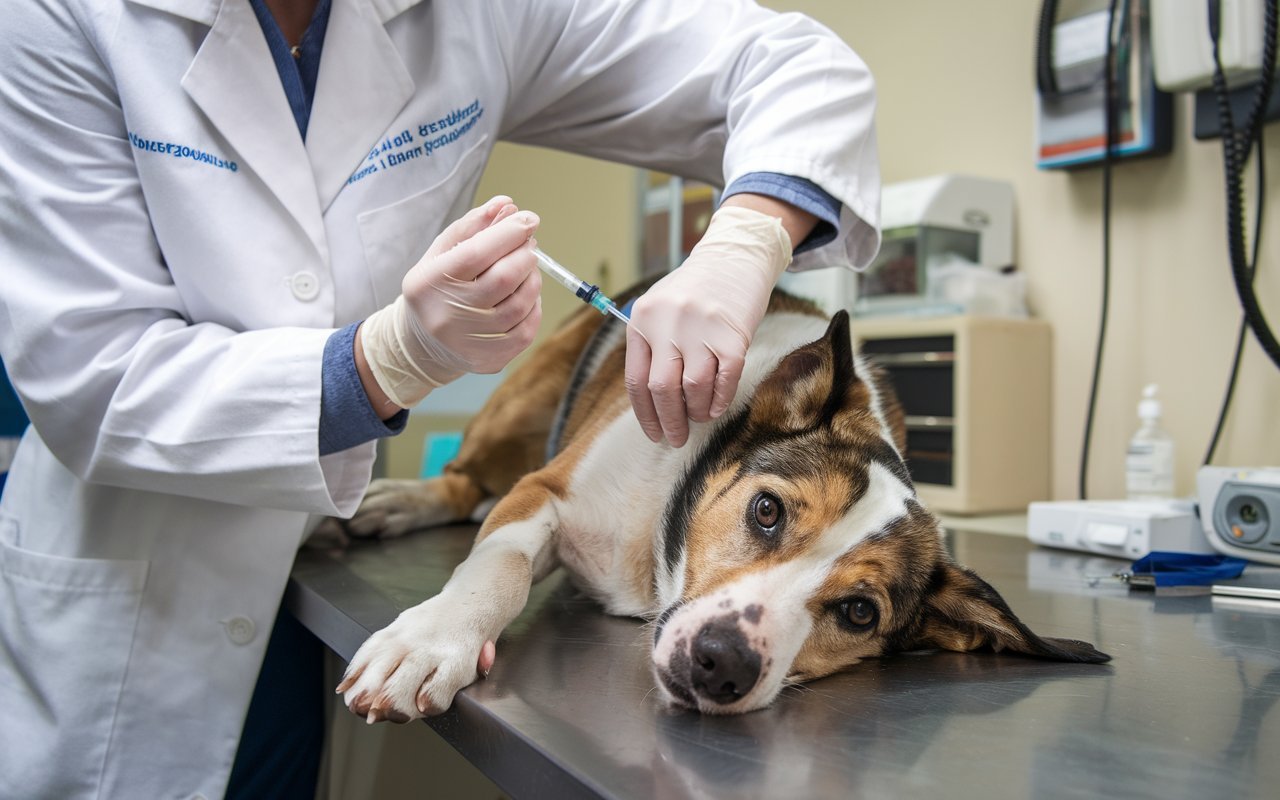How Often Should Dogs Be Vaccinated?
Vaccinations are a cornerstone of preventive healthcare for dogs, ensuring their protection against various life-threatening diseases. Understanding the proper vaccination schedule is crucial for every dog owner to maintain their pet's health and immunity throughout their life.
The Importance of Dog Vaccinations
Vaccines play a vital role in protecting dogs from severe and potentially fatal diseases. They work by stimulating the immune system to recognize and fight specific pathogens, creating a defense mechanism that safeguards your dog's health. This protection extends beyond individual pets, helping prevent the spread of diseases within the broader canine community.
Regular vaccination schedules are essential because they maintain continuous immunity against dangerous diseases. Without proper immunization, dogs become vulnerable to infections that could lead to severe illness or death. The timing of these vaccinations is particularly critical during a dog's early development stages.
Veterinary medicine has established clear guidelines for vaccination schedules, considering factors such as age, lifestyle, and environmental risks. These schedules are designed to provide optimal protection while minimizing the frequency of vaccinations needed.
Core vs. Non-Core Vaccines
Core vaccines are mandatory for all dogs due to the universal risk and severity of the diseases they prevent. These essential vaccines protect against rabies, distemper, and parvovirus. Each of these diseases poses a significant threat to canine health, with some having the potential to affect humans as well.
Non-core vaccines are recommended based on your dog's specific lifestyle and risk factors. These include vaccines for conditions like Bordetella (kennel cough) and Lyme disease. Your veterinarian should decide whether to administer non-core vaccines, considering your dog's exposure risks and living environment.
Your veterinarian will assess various factors, including geographic location, outdoor activities, and contact with other animals, to determine which non-core vaccines are appropriate for your dog.

Puppy Vaccination Timeline
Initial Vaccinations
Puppies require a series of vaccinations starting at 6-8 weeks of age. The schedule typically involves multiple doses administered every 2-4 weeks until the puppy reaches 16 weeks.
This careful timing ensures optimal immune response and protection during the critical early development period.
Booster Requirements
After completing the initial series, puppies need a booster vaccination at one year of age.
This first-year booster is crucial for establishing long-term immunity and ensuring the effectiveness of the initial vaccination series.
Protection Period
The immunity developed during the puppy vaccination series typically protects for several years, though the duration varies depending on the specific vaccine and individual dog's immune response.
Adult Dog Vaccination Schedule
Adult dogs require different vaccination frequencies depending on the type of vaccine:
-
Rabies vaccines need renewal every 1-3 years, based on local regulations
-
Core vaccines like distemper and parvovirus typically require boosters every three years
-
Non-core vaccines may need annual updates depending on risk factors
Signs Your Dog Needs a Vaccine Booster
Dogs may show subtle signs indicating the need for a vaccine booster. These can include decreased energy levels, increased susceptibility to minor infections, or recent exposure to high-risk environments like kennels or dog parks. Regular veterinary check-ups help monitor your dog's immunity levels and determine when boosters are necessary.
Vaccination Safety and Side Effects
Most dogs tolerate vaccines well, experiencing only mild, temporary reactions. Common side effects include slight lethargy or minor swelling at the injection site. Severe reactions are rare but require immediate veterinary attention if they occur.
Can Dogs Receive Different Types of Vaccines Simultaneously?
For most healthy dogs, multiple vaccines can be administered during the same visit. Veterinarians carefully evaluate each dog's health status and risk factors to determine the appropriate combination of vaccines. The timing and combination of vaccines are strategically planned to maximize the immune response while ensuring safety.
How Do Environmental Factors Affect Vaccination Needs?
A dog's lifestyle, geographic location, and exposure risks significantly influence its vaccination requirements. For example, dogs that frequently visit kennels, dog parks, or groomers may need additional protection against diseases like Bordetella. Similarly, dogs in certain regions may require specific vaccines based on local disease prevalence.
What Role Do Age and Health Status Play in Vaccination Timing?
Age and overall health condition are crucial factors in determining vaccination schedules. Senior dogs or those with compromised immune systems may require modified vaccination protocols. Additionally, puppies need more frequent vaccinations due to their developing immune systems and the interference of maternal antibodies.
How Long Does Vaccine Protection Last?
Vaccine duration varies significantly depending on the type. While some vaccines protect for three years, others require annual boosters to maintain effectiveness. Regular veterinary consultations help determine when boosters are necessary based on individual circumstances and risk factors.
Frequently Asked Questions
Q: Can my dog receive multiple vaccines at once?
A: Yes, most healthy dogs can safely receive multiple vaccines during the same visit. Your veterinarian will determine the best approach based on your dog's individual needs.
Q: What happens if my dog misses a scheduled vaccination?
A: If your dog misses a scheduled vaccination, contact your veterinarian to create a catch-up schedule. In some cases, the vaccination series may need to be restarted.
Q: Are annual vaccinations necessary for all vaccines?
A: Not all vaccines require annual boosters. Core vaccines typically provide protection for three years, while non-core vaccines may need more frequent updates.
Conclusion
Maintaining an appropriate vaccination schedule is vital for your dog's health and well-being. By following veterinary recommendations and keeping up with regular check-ups, you can ensure your dog remains protected against preventable diseases throughout their life. Remember that each dog's vaccination needs may vary, so always consult with your veterinarian to develop a personalized vaccination plan.







